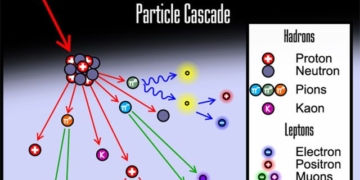In-depth research conducted in 2013 by scientists Amar Cheema from the University of Virginia and Vanessa M. Patrick from the University of Houston revealed that humans feel most comfortable and are at their most intelligent when they are in a temperature-controlled environment around 22 degrees Celsius, with an adequate supply of glucose.
The two scientists began their investigation by observing the lottery ticket purchasing behavior of tourists in Florida during the sweltering summer heat. It was noted that tourists tended to overlook tickets in the tens range and preferred traditional lotto tickets with six numbers. Many tourists even opted for just a single ticket and wrote down only a few phone numbers. In contrast, in cooler climates like Alaska, individuals made their lottery ticket choices based on personal preference.
This difference creates varying opportunities for luck. It indicates that in colder weather, tourists can deliberate and make better choices, even in more complex situations. However, in hotter weather, lottery players tend to choose the simplest and most familiar options, specifically opting for the six-number lotto tickets. This straightforward selection method results in a very low winning probability in Florida, with only about 1 in 22,957,480 chances of winning.
Subsequently, Amar and Vanessa collected sales data from various lottery games in St. Louis County over the course of a year. Based on this data, they identified differences in business models and correlated interactions with daily temperature variations. The findings were impressive. For scratch-off lottery tickets, which require buyers to make multiple choices, a 1-degree Celsius increase reduces the chance of winning by $594. In contrast, traditional lottery ticket sales, which require fewer decisions, seemed unaffected by temperature changes.

In cold temperatures, people can be more alert than in hot environments.
From these observations, the researchers decided to conduct laboratory experiments to investigate the correlation between weather and complex decision-making in human cognition through a series of comparative experiments assessing human cognitive ability in environments with temperatures ranging from 19 degrees Celsius to 25 degrees Celsius. The research results indicated that participants felt most comfortable at around 22 degrees Celsius. Although this is only a 6-degree difference from the minimum and maximum temperatures in the study, it significantly impacts cognitive function.
Participants in the laboratory study were asked to reread an article while in rooms at 19 degrees Celsius and 25 degrees Celsius. Those in the warmer room exhibited significantly poorer cognitive control than those in the cooler room. They failed to identify nearly half of the spelling and grammatical errors in the article, while those in the cooler room missed only about a quarter of the errors. These results suggest that even when performing simple cognitive tasks, individuals can be influenced by their surrounding temperature.
Consider a simple fact: our brain is an organ of the body. Like all other organs, control centers require energy to function. Almost everything we do, whether it’s a simple muscle activity or complex thinking, requires a sufficient supply of glucose. Humans utilize glucose every time they walk, talk, breathe, and perform other daily activities. Furthermore, the human body itself uses glucose when the brain carries out basic functions such as decision-making, controlling bodily behavior, regulating emotional responses, and even solving mathematical problems. Importantly, the amount of glucose we consume is the fundamental source for both physical and mental activities, so it needs to be regulated properly.

An ample supply of glucose for the brain enhances cognitive function.
Additionally, the two scientists delved deeper into how temperature affects glucose consumption. This is key to understanding why people tend to be more alert in cold environments compared to hot ones. In hot weather, the human body expends more energy to cool down than it does to warm up in cold conditions. Meanwhile, the energy of the human body is derived from glucose. This is also a necessary component for the conscious functioning of the brain.
By examining the glucose consumption process among participants in both hot and cold rooms with varying temperatures, the researchers discovered that complex cognitive choices for participants in the hot room quickly became skewed due to significant glucose depletion compared to those in the cool room. This depletion weakened their cognitive function. Conversely, being in a cooler environment, where the body expends less energy, allows for a more abundant supply of glucose for the brain, enhancing cognitive functions.
In a second study, the researchers asked participants to perform more complex calculations when choosing between two mobile phone plans. One option was simply to choose a model that looked appealing but was more expensive. Results showed that those in the hotter room spent only 1/4 of the total time on their choice and tended to select the simpler option. In contrast, those in the cooler room dedicated more than half their time to making a choice, conducting complex analyses to select the more effective option before making what they deemed a reasonable decision.
Continuing with a third study, the scientists also demonstrated that individuals in hot environments often struggle to make complex decisions. When asked to choose between two products: one innovative and one traditional, those in the hot room tended to choose products based on appearance, showing little effort to mobilize the cognitive resources necessary to evaluate product information compared to those in the cooler room.
Of course, this research does not imply that people living in hot regions lack the ability to make intelligent decisions or that their brains are deprived of glucose. Nonetheless, it highlights that glucose needs and temperature are among the factors influencing human decision-making, as they somewhat affect the willingness to think critically. Long before this research, scientists were aware that glucose is the fuel for brain activity. In a study published in the American Journal of Clinical Nutrition in 1998, scientists provided evidence that glucose plays a crucial role in enhancing human learning and cognitive abilities.





















































